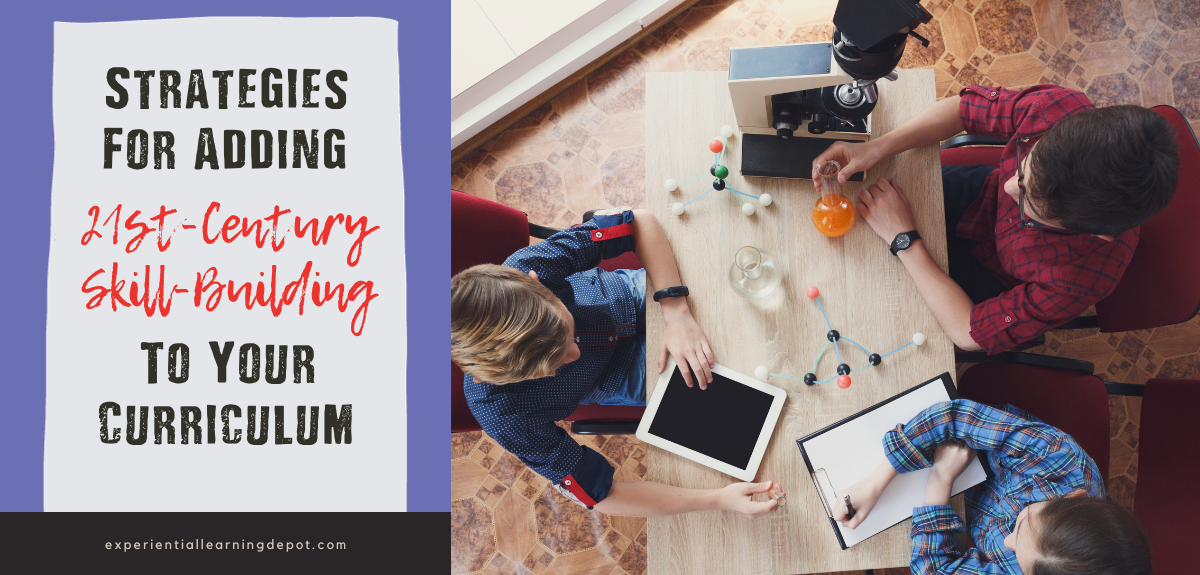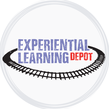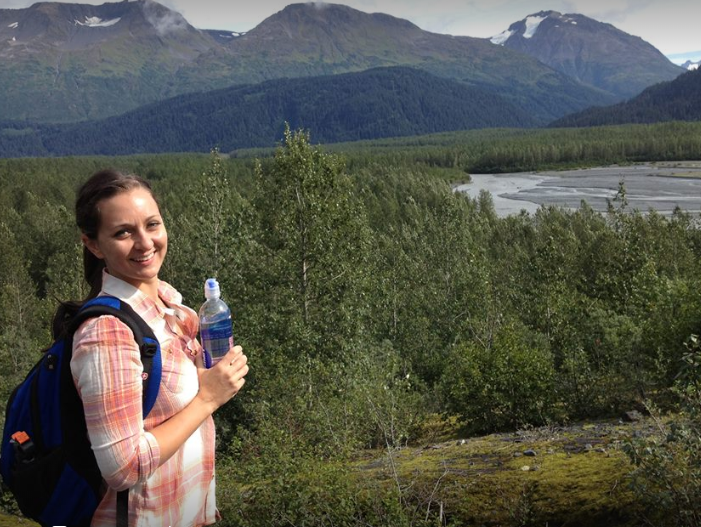|
Experiential learning resources for the innovative educator
Teaching 21st-century skills is essential for 21st-century learners. That is the truth of it. Content knowledge is important, but soft skills are as well. As the world around us transforms, the value of and need for particular skills shifts.
Ken Robinson talks about this at length in his book "The Element", which I encourage you to read. He makes note of the need for certain skills when the Industrial Revolution was just beginning.
Skills in science and math, for example, were essential at that time, and education in schools developed around an industrial economy. Now where are we? We are not only in a digital revolution, but that revolution has only just begun. Who knows what the future holds? Think back only 10 years ago. Every one of us has a funny or nostalgic story about the terrible tech that we had to deal with. Dial up internet wasn't that long ago. If you are 30+ that sound will be firmly fixed in your brain for the rest of your life! Now we have ChatGPT handling literally everything in our lives from planning meals for the week to designing full home renovations. Yet schooling has changed and evolved to keep up with these innovations very little. Schools have come around in some ways, such as adding ed certain tech tools to the classroom.
There needs to be a shift in priorities; a paradigm shift. Leaving out 21st-century skills in teaching approach for the sake of content-only instruction is a disadvantage to 21st-century learners.
If we want our kids to have a chance at a happy and successful future, we need to participate in getting them there. Employers are looking for creativity, the ability to innovate and solve global problems with cutting edge solutions. Content can be explored with the touch of a finger. Collaboration, critical thinking, and inquiry skills, on the other hand, don't come that easy. We need to give our 21st-century learners an advantage by putting as much weight on those skills in our curriculum as we do on content, if not more. Twenty-first century skills are important in so many ways. Let's talk about the how. How can you make 21st-century skill-building a part of your curriculum?
1) Be Intentional with How You Talk About 21st-Century Skills:
Start by making these "21st-century skills" a part of your daily lexicon. Give the skills whatever term you desire - 21st-century skills, soft skill, life skills, etc. - and bring attention to them consistently and often.
Acknowledge that 21st-century skills will be practiced before every activity, in the goal-making process, throughout learning experiences, and again at the reflection and assessment phases. Create learning activities AROUND the 21st-century skills, and content knowledge will naturally follow. 6 Ways to Add 21st-Century Skills to Your Curriculum
2) Set Goals Around 21st-Century Skills:
Encourage students to create goals around 21st-century skills. Bring skill-building to light right from the start: from the beginning of the school year, at the beginning of an activity, before any project, and so on. Experiential educators can and should make 21st-century skills goals part of every learning experience. My project-based learning resources, particularly my self-directed PBL starter kit, include goal-writing in the personal learning plan and project-development phases. Example Goal: I will work on communication and collaboration skills by contacting at least one community expert for this project to gather expertise from or partner with.
3) Incorporate Quick Exercises to Practice 21st-Century Skills
I love having my students do quick, 10-minute exercises, especially when they're showing a deficiency in particular skills.
Examples include exercises on resourcefulness, critical thinking, communication, problem-solving, time-management, task-management, and self-direction.
4) Plan Experiential Learning Activities:
Growing in 21st-century skills is far less likely to occur as a result of lecture, worksheets, packets, and other teacher-centered learning activities. I talked with a parent the other day that defended worksheets with repetitive math problems. He said, “well it’s practice right?” My answer was that it depends on what it is he would like his son practicing? If these math problems were given in isolation, what he would be practicing is rote memorization, a strategy that might result in the "correct" answers, but not necessarily an understanding of the concepts. Rote memorization alone is ineffective if deep learning is the dominant objective. Practicing math problems in this way might help learners build muscle memory, but learning would be far more effective if those reviews were offered in conjunction with activities that help students build and become competent in 21st-century skills. These activities are experiential in nature. There are tons of teaching methods and learning activities out there that emphasize content AND promote 21st-century skill-building, an ideal combination of outcomes. You don't need to choose content or skills. Take them both on by trying some of these experiential learning activity types.
5) Build 21st-Century Skills Into Your Assessment Strategy:
Work 21st-century skills into any assessment. Rubrics are great assessment tools that can include relevant skills as an assessment category such as public speaking, use of new tech, creativity, etc. My student-generated rubric leaves room for self-directed learners to add their own assessment criteria. Students would consider their goals made in the design phase of the project as a category in their self-generated rubric.
6) Reflection:
Reflecting is an essential part of the experiential learning process. If students are making goals related to 21st-century skills, those goals aren’t relevant unless they’re revisited and reflected upon. Include reflection opportunities in as many learning experiences as you can, experiential or not.
There are many ways to build 21st-century skills. Life in itself is the best learning tool. Give learners an advantage - a head start - by making 21st-century skill-building the norm in your curriculum.
Help students build the skills they need to succeed in their academic, career, and personal lives as they relate to the 21st-century. This is not the same world that it was 100, 50, or even 20 years ago. Give them the tools to adapt as the world continues to evolve. Give the opportunity to build those 21st-century skills in your classroom.
21st-Century Skills Resources
Let's work together!
Click the links below to learn more:
Let's Get Social:
Follow Experiential Learning Depot on Pinterest, Facebook, Youtube, and Instagram for more on experiential education, and check out my TpT store for experiential learning resources.
Did you know there is an experiential learning Facebook group? Check that out - Experiential Learning Community for K12 Teachers - and join in the discussion about experiential learning. Observe. Question. Explore. Share.
2 Comments
Sara (Experiential Learning Depot)
4/17/2021 07:43:01 am
You bet, Tom! Thanks for reading.
Reply
Your comment will be posted after it is approved.
Leave a Reply. |
Blog IntentTo provide innovative educational resources for educators, parents, and students, that go beyond lecture and worksheets. AuthorSara Segar, experiential life-science educator and advisor, curriculum writer, and mother of two. Categories
All
|












 RSS Feed
RSS Feed